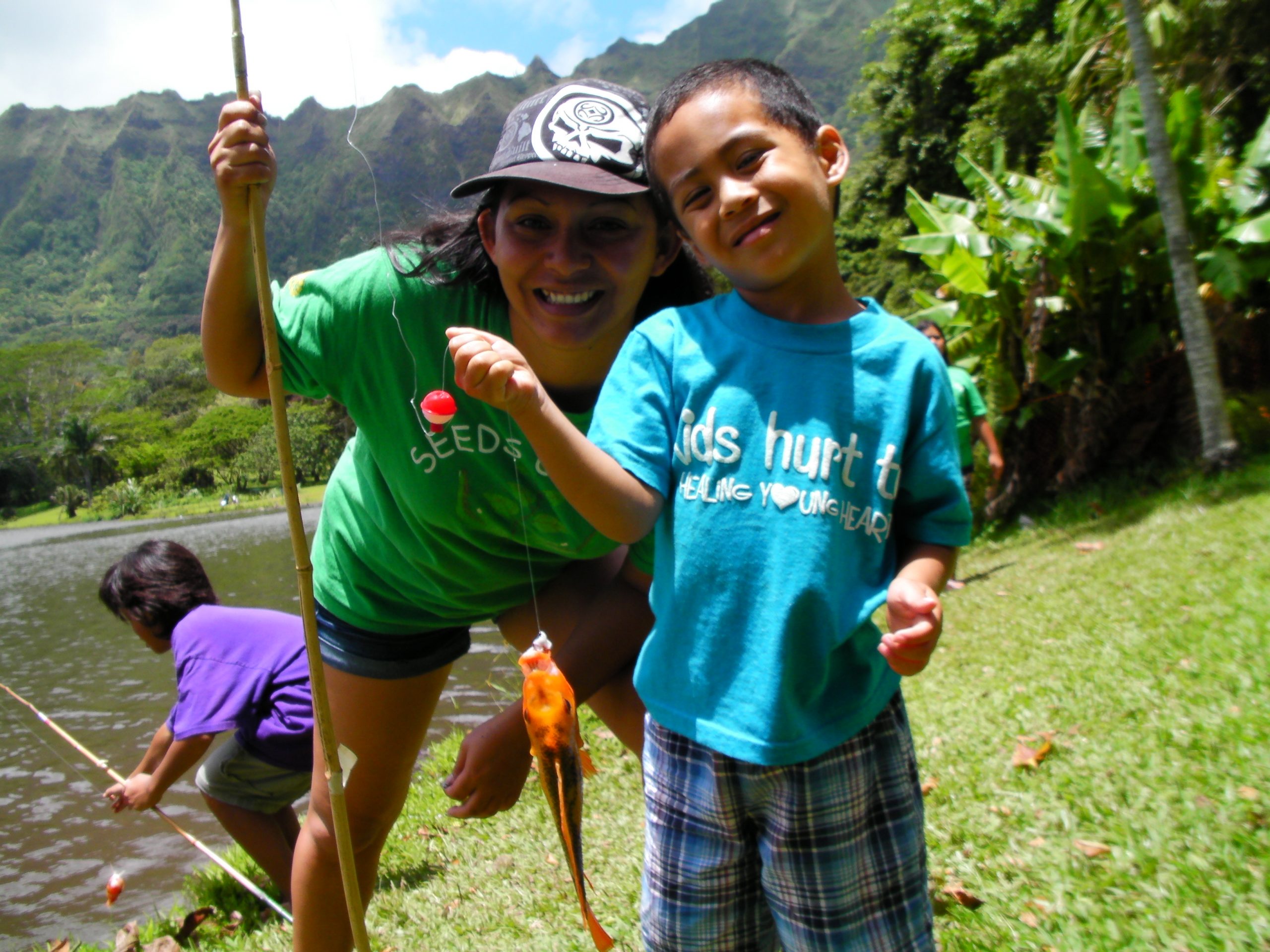
The family is the focus of our services.
Effects of Grief
Grief affects people of all ages very differently. It is a natural adaptation to loss. Loss is change. When the crisis of parent loss impacts a child or teen, and their families, they need supportive care.
Trauma is how the body survives a perceived life threatening event. When children or teens are traumatized, their bodies function differently. They are more vulnerable to lifelong health and mental health problems without interventions.
Grief and trauma are not the same thing. But KHTH supportive services are effective at helping children, teens, and their families manage both crisis in safe and healthy ways.
Kids Hurt Too Hawaii believes that a community of support can nurture children through the crisis of loss and trauma. Positive peer relationships guide the development of safe coping skills. Peer groups communicate belonging, which is a powerful catalyst for change.
Philosophy
“Grief Work” at Kids Hurt Too Hawaii is not counseling or therapy. It is support. Grief Work is a prevention model that does not identify grief or trauma as bad. Grief is a natural and healthy part of being human. But it is stressful. Trauma is how we survive. But we need recovery to move from surviving to thriving. Trauma care is often not easily available to children and symptoms may go undiagnosed for a lifetime. Grief Work helps with trauma recovery by providing the number one most important condition for healing, which is safety. Supportive services prevent the development of problems related to the stress of grief and traumatization. In Grief Work, a safe group environment is maintained and we interact by showing respect, acceptance, and opening ourselves to the stories that connect us.
Approach
KHTH utilizes a Strengthening Families Framework that focuses on improving protective factors in families. The focus is on families’ strengths and the importance of families bonding with each other and their communities. Parents and caregivers often need support in parenting a child with grief and trauma. The family is the focus of our services.
KHTH peer groups are based on The Dougy Center, the National Center for Grieving Children model. Families with similar experiences come together, sharing stories and offering support. Studies show a peer group model provides for the safest and most effective mentoring relationships with children and teens. Most participants in our peer groups say it is the first time they could talk about their loss, or that they have met someone to whom they can relate.
We recognize the psychological and emotional importance of honoring those with whom we have bonded but lost. We encourage remembering the value of the parent-child bond, no matter what the cause for separation or loss. Our peer support programs assist children and teens to continue bonds with parents who are no longer physically available.
We believe early intervention for grief and trauma is key to achieving the best results. Without proper interventions following the loss of a parent, children and teens can often turn to coping methods that may be questionable or unhealthy.
Value
Caregivers are surprised when their children remind them so they won’t miss a group. Children ask to come on their birthdays, and teens have told us they save up their feelings for the group having no one else with whom to safely confide. Parents and caregivers have expressed the deep appreciation they have felt for the relationships they form in the program, which have helped them walk through and honor their grief and trauma.
“We can’t prevent domestic violence, victimization of children, and loss of family members. But, we can provide resources that help children cope with those difficult situations.” – Cynthia White, Co-Founder & Executive Director.